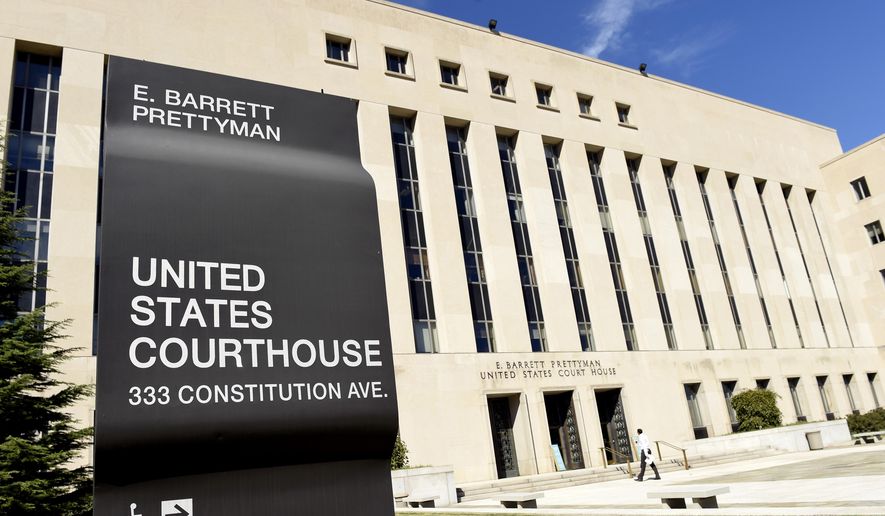A federal court on Friday shot down Virginia’s attempt to force the National Archives to add the Equal Rights Amendment to the Constitution, ruling that the ratification deadline passed decades ago.
Judge Rudolph Contreras, an Obama appointee to the district court in Washington, D.C., said the last deadline Congress set was 1982. Virginia, which says it was the key 38th state to ratify, had argued that the deadline wasn’t binding, but the judge shot down that argument.
Plaintiffs’ ratifications came too late to count.
For good measure, he said, Virginia and fellow states also lacked standing to sue.
The ruling is a serious blow to backers of the ERA, who had hoped to thread a legal needle in forcing the amendment into the Constitution.
The amendment, proposed by Congress in 1972, read: “Equality of rights under the law shall not be denied or abridged by the United States or by any State on account of sex.”
When Congress submitted the amendment to the states for ratification — which requires three-fourths of states’ approval — it set a 1979 deadline. As that deadline approached, Congress tacked another three years onto the deadline, but the amendment was still three states shy of the target by the time the new deadline arrived.
Meanwhile, at least five states had voted to revoke their ratifications.
The situation has raised thorny questions about the amendment process for the Constitution. One of those is, if the ERA were to be accepted, which view would control the way the amendment is interpreted.
When the ERA was proposed in 1972, LGBTQ rights were not part of the debate in Congress, nor did the then-nascent LGBTQ-rights political movement appear to play a key factor in the ratifications.
But now, ERA supporters say LGBTQ rights are at the fore of the amendment.
Constitutional experts say those differing understandings over the course of 50 years are one reason why time limits on ratification make sense.
Still, a new push to finish ratification has taken hold in the last several years.
Since 2017, Nevada, Illinois and Virginia — none of which had ratified the ERA before — have now done so.
Virginia was the final state, acting last year, immediately after Democrats took complete control of the legislature for the first time in more than two decades.
After Virginia’s action, the states sued the National Archivist, who keeps the records of the Constitution, demanding that he publish the ERA as the 28th Amendment.
In the. House, Democrats have also tried to assist the effort.
Last year they approved a bill to erase the 1982 deadline, which they say would make the new ratifications legal. That legislation never saw action in the GOP-led Senate, but Democrats have announced another attempt this year, with Democrats now in control of both chambers.
Douglas D. Johnson, senior adviser to National Right to Life, which opposes the ERA, said it “has a much steeper climb in the Senate.”
“The Democrats’ position that the current Congress, by simple majority votes, can retroactively revise a measure that passed Congress in 1972 by the constitutionally required two-thirds margins, is absurd on its face,” he said.
Judge Contreras in his Friday decision only ruled that the 1982 deadline was legal.
“There is no doubt that Congress intended [the deadlines]to be binding. And few have questioned that they are,” he ruled.
He did not, however, confront questions of whether Congress could retroactively create a new deadline or remove the 1982 deadline.
He also didn’t confront the question of states that revoked their ratifications.
• Stephen Dinan can be reached at sdinan@washingtontimes.com.




Please read our comment policy before commenting.